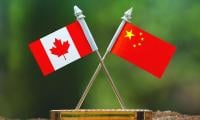Preventing Pakistan default will depend on China: Bloomberg
Pakistan, a nuclear-armed nation of 240 million people, is racing down a road that leads to the disruption of default or the chaos of austerity — and, for once, it’s not all Pakistan’s fault. In fact, it is almost as if the $380-billion economy’s looming crisis is designed to reveal the ways in which the world’s sovereign debt restructuring mechanism is severely outdated and needs to be fixed — by the G-20, if nobody else steps up.
Pakistani governments do bear responsibility for bad budgeting. The economist Murtaza Syed has estimated that Pakistan needs $35 billion a year to pay for its imports and repay its foreign debt. That amounts to 5 percent of gross domestic product, while the government’s own tax collection is only 10 percent of GDP.
Can any government credibly commit to cut spending in half immediately? Greece was only able to crunch spending by a third between 2009 and 2014, and Pakistan’s government starts from a much lower base in terms of entitlement spending than Greece’s.
But Pakistan’s leaders aren’t entirely to blame. The pandemic hurt and then, before the government could implement needed reforms, devastating flooding displaced millions and caused $30 billion worth of losses. The Ukraine war added to the pain: Pakistan’s imports of food surged by 65 percent following the floods, even as the fighting disrupted global supply chains. Its fuel import bill also soared as a consequence of the war.
How the world addresses this combination of self-inflicted and external challenges will be critical. The International Monetary Fund appears close to reviving a $6.5 billion loan program to forestall the immediate crisis.After that, Pakistan will need to look for a decent debt restructuring package that helps its creditors get some of their money back while politically feasible reforms are implemented that allow for sustainable debt payments and imports in the future.
Unfortunately, Pakistan needs a deal just when the systems that had, for decades, managed such sovereign debt restructurings are breaking down. In the past, the major creditor countries — mostly Western nations and Japan, who together constitute the Paris Club — were also the major shareholders of the IMF and hosted the private banks that dominated commercial lending to debt-ridden countries. This made it relatively easy to ensure that official debt relief was compatible with the terms that private capital received, and that the IMF imposed.
That’s no longer the case. At the end of the last financial year, Pakistan’s outstanding bilateral debt to the Paris Club countries was about $10 billion. Meanwhile, it owed China $23 billion. Two-thirds of the $10 billion it owed “commercial banks” were also to state-owned Chinese lenders operating as official financing arms for China’s Belt and Road Initiative. Between July 2021 and March 2022, over 80 percent of Pakistan’s bilateral debt service went to Beijing. Finally, Chinese financial institutions will have to get their act together. Last year, the director-general of the People’s Bank of China’s department of international affairs, Jin Zhingxia, warned that big Chinese lenders with external exposure didn’t have a lot of experience with debt restructuring, and needed to sit down to coordinate with each other and with the Paris Club. In addition, any actual writing down of principal amounts might require sign-off from the State Council.
China’s rise as a lender to the Global South, the surge in the prices of food and fuel thanks to the Ukraine war, and the devastation wrought by climate change: All these are factors that will drive more and more countries to the brink of default in coming years. Few will be as consequential as Pakistan. If Pakistan can be saved through a rationalization of its debt, then the others have hope.
Later this week, G-20 finance ministers will meet in Bengaluru and will reportedly discuss a proposal for more equitable burden-sharing. Any self-serving objections from China should be overruled. A sovereign debt restructuring system designed for the 20th century can’t be allowed to wreck the 21st.
-
 Prince Harry, Meghan Markle Make Major Change To Strategy To Please Royal Family
Prince Harry, Meghan Markle Make Major Change To Strategy To Please Royal Family -
 Chester Bennington’s Mental Health Story And Lasting Legacy
Chester Bennington’s Mental Health Story And Lasting Legacy -
 John Cusack Gears Up To Give Fans Exciting Surprise On Late-night Television
John Cusack Gears Up To Give Fans Exciting Surprise On Late-night Television -
 Yerin Ha Opens Up About Shocking Diagnosis Post ‘Bridgerton’ Season 4
Yerin Ha Opens Up About Shocking Diagnosis Post ‘Bridgerton’ Season 4 -
 Meghan Markle, Harry Leave King Charles, Prince William Furious With Latest Move
Meghan Markle, Harry Leave King Charles, Prince William Furious With Latest Move -
 NASA Announces New Artemis Moon Mission Aimed At Expanding Astronauts’ Exploration Efforts
NASA Announces New Artemis Moon Mission Aimed At Expanding Astronauts’ Exploration Efforts -
 Everything To Know About Justin Bieber's Facial Paralysis
Everything To Know About Justin Bieber's Facial Paralysis -
 Morgan Stanley Predicts AI To Replace Tasks Not Workers
Morgan Stanley Predicts AI To Replace Tasks Not Workers -
 Anthropic Dario Amodei Calls White House Response ‘retaliatory’ In AI Safety Dispute
Anthropic Dario Amodei Calls White House Response ‘retaliatory’ In AI Safety Dispute -
 Savannah Guthrie Speculations 'sadly' Coming True About Mother Nancy
Savannah Guthrie Speculations 'sadly' Coming True About Mother Nancy -
 Tia Mowry Breaks Silence On Angelina Jolie Asking 'unbelievably' Personal Question: 'Wilder'
Tia Mowry Breaks Silence On Angelina Jolie Asking 'unbelievably' Personal Question: 'Wilder' -
 Trump Administration Warns Of Slow Payouts For Tariff Refunds Amid Intensifying Trade Disputes
Trump Administration Warns Of Slow Payouts For Tariff Refunds Amid Intensifying Trade Disputes -
 Princess Beatrice 'far From Comfortable' After Father Andrew's Arrest
Princess Beatrice 'far From Comfortable' After Father Andrew's Arrest -
 Sarah Ferguson’s Dual Cancer Journey
Sarah Ferguson’s Dual Cancer Journey -
 GTA 6 Security: Rockstar Blocks Leaks Ahead Of Launch
GTA 6 Security: Rockstar Blocks Leaks Ahead Of Launch -
 Demi Moore's New Look At Milan Fashion Week Sparks Serious Concern
Demi Moore's New Look At Milan Fashion Week Sparks Serious Concern



